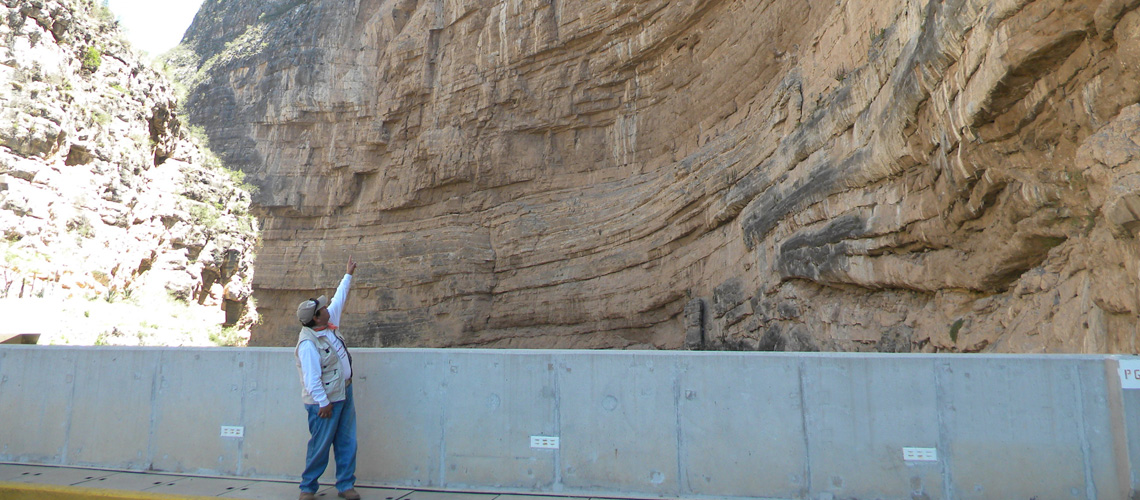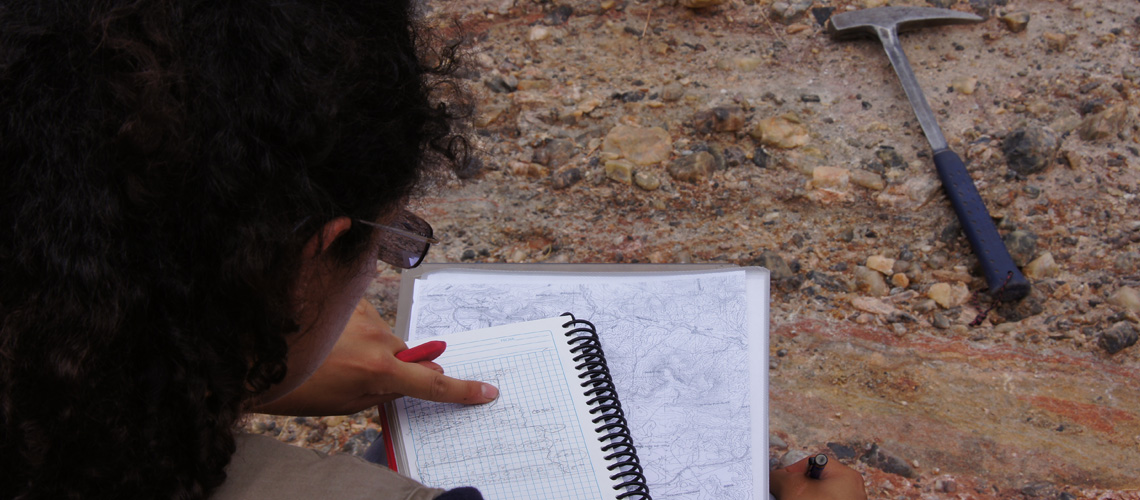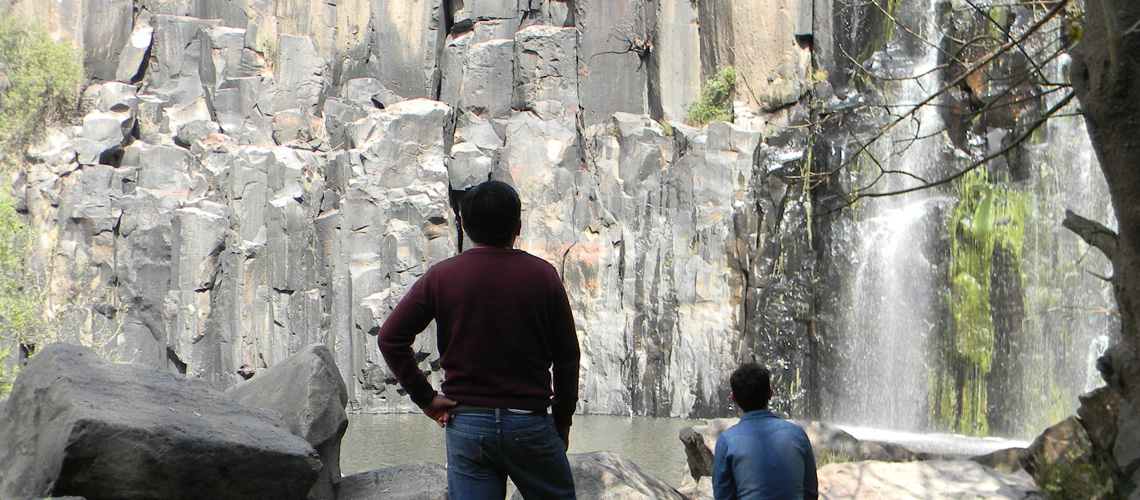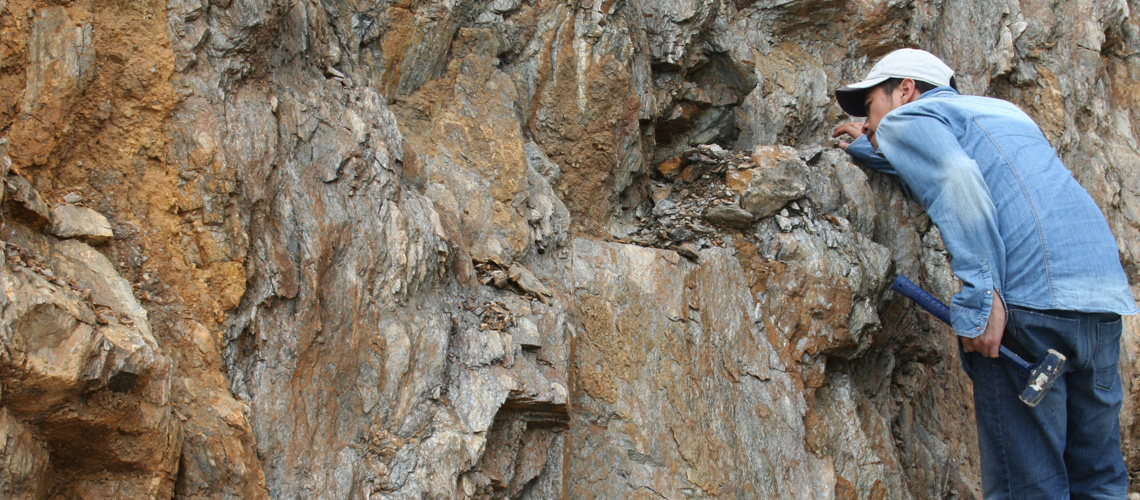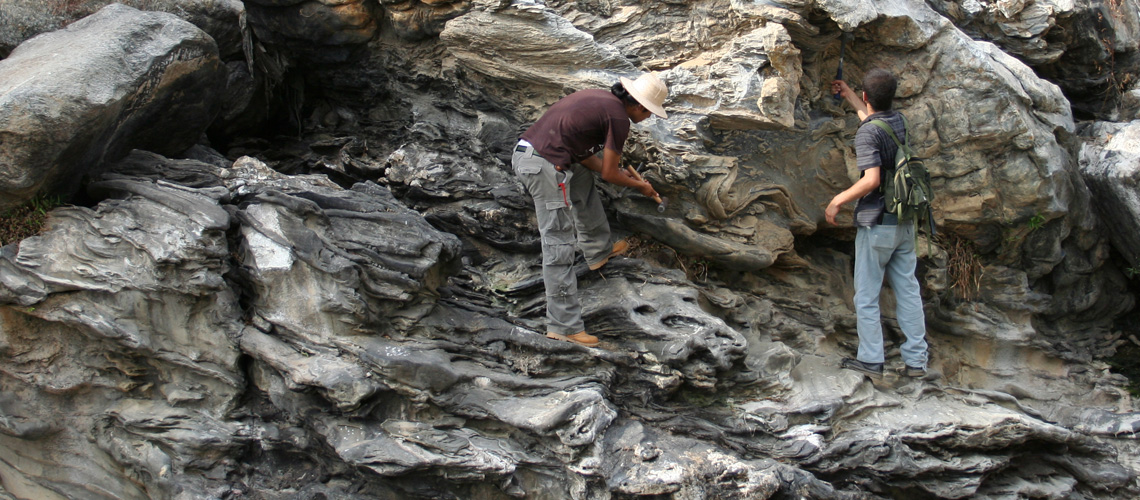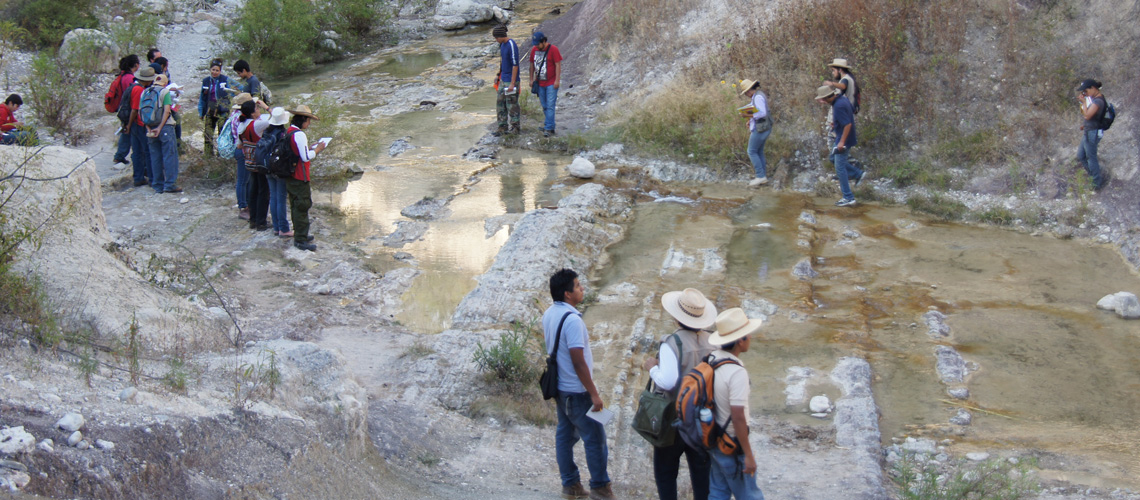The Geological Engineering program develops professionals who apply technical and scientific knowledge to discover the mineral resources, locate hydrocarbon deposits, find and control the exploitation of water resources, plan infrastructure development, look for alternative sources of energy, as well as analyze the problems related to environmental conservation and the prevention of geological disasters, so that, in short, their task is of great importance, not only for the population as a whole, but also for the technological, energy, and communications development in our country.
The student interested in entering the Bachelor's degree in Geological Engineering, of the Faculty of Engineering at UNAM, must graduate from the National Preparatory School, College of Sciences and Humanities or other programs of preparatory education. It is desirable that you have studied the area of Physical-Mathematical Sciences or the set of subjects related to these fields of knowledge in the College of Sciences and Humanities, or in other preparatory curricula. In all cases, the desirable profile includes the following knowledge, skills and attitudes.
You must possess solid knowledge of mathematics in algebra, analytical geometry and differential and integral calculus of functions of one variable; you must also have solid knowledge of physics, particularly in matters related to classical mechanics, as well as general knowledge of chemistry and computation. It is also desirable to know English, at least at the level of understanding of texts. In terms of skills, it is important to be willing to work in a team, have ability for analysis and synthesis, and adapt to new situations, you must also have a creative spirit.
The student who starts the program of Geological Engineering must have the skills of observation, search for information and interest in research, oral and written communication with clarity and precision, an entrepreneurial attitude, propositional, commitment, discipline and order for work, in addition to enjoy mathematical approaches and outdoor activities.
Graduates of the degree in Geological Engineering must possess capacities for innovation, potential to contribute to the creation of technologies and entrepreneurial attitude. They will have clear ideas about mathematical modeling of physical phenomena and optimization; will be open to both continuous learning and interdisciplinarity. They must have knowledge and skills of oral and written communication, with social sensitivity and professional ethics, and with potential and vocation to become a factor of change.
SpecificWhen finishing your professional training, a Geological Engineer must possess the following knowledge, abilities and attitudes:
Knowledge:
• Understand and apply knowledge of geology, mathematics, physics and chemistry to prevent and solve problems in the workplace, as well as to develop attitudes of continuous adaptation and flexibility to change.
• Recognizes and identifies materials that make up the crust and the interior of the Earth, determines the structures that frame and affect those materials.
• Knows and understands the processes that have led to the Earth's materials and their evolution, with several objectives: to explore, evaluate and quantify mineral resources, oil and water, among others, and to take care of the preservation of the environment.
• Understands and develops hypotheses and theories that allow him to explain and quantify geological phenomena and processes.
• Has acquired social and humanities skills, to work in interdisciplinary groups.
Abilities:
• Ability to search, integrate, analyze and interpret information for the solution of Geological Engineering problems.
• Capacity of observation, description of outcrops of rock bodies and recognition of structures of the terrain in its three dimensions.
• Verbal and written ability to communicate clearly and accurately.
• Ability for leadership and decision making, coordinate and manage personnel with different profiles.
• Ability to propose innovative solutions.
• Ability to act with a solid professional ethic and, consequently, a high sense of responsibility and honesty.
• Willingness to permanently keep up to date, in science and technology.
• Ability to use different types of software common in areas of the Earth Sciences.
• Ability to perform field activities because most of their work is done outdoors, and willingness to travel and adapt to harsh and sometimes inhospitable environments.
Attitudes:
• Have discipline and be organized.
• Be responsible, self-critical and purposeful.
• Act with perseverance and tenacity in the activities undertaken.
You will also develop the following social attitudes:
• Be aware of the political, economic and social reality of the country and of the international context, so that it is possible to compete successfully under the new conditions of globalization.
• Maintain an enterprising, humanistic and service attitude towards society.
• Develop creativity and innovation in scientific and technological aspects.
• Be conciliatory and understanding, because you will often face social problems.
• Be committed to society and to the preservation of the surrounding environment.
The geologist is the professional that participates in the exploration, evaluation, and exploitation of energy, mineral and hydrological resources; contributes to mitigate environmental impact and geological hazards. Participates in studies of the soil and subsoil for the construction of civil engineering works such as dams, thermoelectric plants, bridges, roads and other infrastructure works in federal and state public agencies, and private companies related to the Federal Electricity Commission, National Water Commission, Mexican Geological Service, National Disaster Prevention Center, PEMEX, Institute of Mexican Oil, Secretariats of Energy, Communications and Transportation, and Social Development, Mining Groups, and service companies and consultants in these areas. In addition, he/she can provide services in research institutes and teaching.
The Geological Engineer develops several activities in the following areas:
Mining industry: In the exploration of metallic and nonmetallic mineral resources to increase the reserves of the metallic and nonmetallic mineral deposits of the country. Oil industry: Contributes to discover and quantify new oil fields, proposes the areas where they are, to exploit them as a useful source of energy and in petrochemistry. Water resources: Explores, locates, evaluates and quantifies underground water supply sources (aquifers) for cities, industries, electricity generating plants and agricultural areas. It also designs, implements and monitors management programs for its sustainable exploitation.
Alternate Energy Resources: Indicates appropriate locations for the establishment of geothermal, nuclear, wind, tidal, and other green energy plants. Civil Engineering: Contributes to determine the suitable places for the construction of infrastructure like bridges, roads, dams, hydroelectric plants or railroad tracks. Forecasts and evaluates construction materials, such as stone resources, quarries and banks of materials.
Protection of the environment: Studies how to prevent and mitigate damages related to geological phenomena that influence ecology, such as earthquakes, landslides, floods, volcanic activity, among others. It also designs, implements, monitors and evaluates economically comprehensive strategies to remedy soils and aquifers contaminated by hydrocarbons, heavy metals, pesticides and compounds that are averse to health and environment.
Research: Participates in several specialties where research is conducted to know aspects about the origin, processes, evolution and transformations of the planet. Performs interdisciplinary work with different types of professionals such as geophysical engineers, oil workers, miners and metallurgists, as well as civil engineers and other professionals related to his work.





